We know, as well, that teacher quality has the single largest impact on educational outcomes for students. But according to UNESCO not only is teacher quality at risk, nearly 50 million more teachers are needed to help reach SDG 4 by 2030. The teacher crisis is felt around the world, and reflects ongoing trends: low pay and decreased social stature on the micro level and the effects of political and environmental instability and the difficulty of keeping children engaged in an online world on the macro.
In response, some are turning to innovative solutions that integrate AI and algorithmic processing to extend the effectiveness of teachers. When operating at the cutting edge of technology, these innovations have to navigate a careful balance. Teacher autonomy, classroom privacy, ethical considerations and pedagogic value all factor in. This tightrope walk means that, for now, the most effective implementations maintain a narrow focus in their use of AI. Among the many examples selected to the 2024 Global Collection, 4 innovations stand out for how they empower students and personalize their learning: CatnClever, Annie Advisor, Eduten, and LifeVitae.
Helping more students access quality education
Ask just about any teacher what takes up the majority of their time, and you’re likely to hear “marking assessments and grading.” Educators know how impactful high-quality feedback is in helping students grow, but formative assessment takes time, a precious commodity in the classroom. Eduten set out to make this process faster, easier, more fun and more informative. Makke Leppänen, Head of Partnerships at Eduten, shares how their programme supplements in-school learning: “ Teachers are still teaching new math concepts, but when it’s time to do exercises, students log onto Eduten. By integrating gamified exercises and personalized learning pathways tailored to each student's needs, Eduten engages learners in a dynamic and interactive way, fostering deeper understanding and retention of mathematical concepts.” Students receive feedback and instantaneous marking along the way while teachers are able to review what concepts their students have mastered, and which ones need more focused practice.
The integration of algorithms and AI in education enhances personalization, feedback mechanisms, data analysis, language learning support and content adaptation.
The streamlined math practice leads to strong learning results - in a recently completed study in Bhutan, students who completed just one Eduten lesson a week showed a 40% improvement in in their math skills and 45% improvement in their math fluency - how well they handle numbers in practice - versus their peers who had the same amount of traditional math instruction after only 10 weeks. The programme effectively extends the teacher’s time and attention, letting the class work on exactly what it needs to succeed. But what happens when the student’s don’t yet have a teacher?
CatnClever seeks to use AI to enhance learning for preschool children. “The brain of young children are highly adaptable and receptive to new information and experiences,” says CatnClever CEO Olga Ruf-Fielder. Yet today’s preschoolers spend on average 2 or 3 hours a day and the vast majority of apps that target them lack any educational value or may even show them harmful content. “Young children are in a critical stage of development where they are acquiring fundamental skills and knowledge that form the basis for future learning. We aim to provide them with a solid foundation in literacy, numeracy, and other essential skills, setting them up for academic success later in life,” Olga tells us.
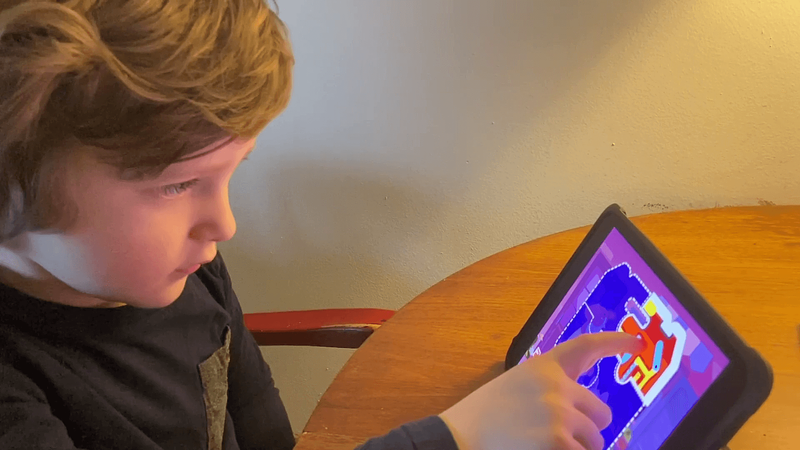
CatnClever is able to tailor its lessons using AI in response to learners' needs
AI has great potential to boost early literacy. Customizing AI can lay the groundwork for a love of learning that lasts a lifetime. Like Eduten, CatnClever adjusts lessons based on how kids use them, offering extra practice where needed and adapting to each child's learning style. Given the sensitivities that arise when children meet technology, CatnClever has rigorous safety and privacy requirements while providing a dashboard to parents of how their children are using the technology and what they are learning.
Building more resilient students
To most, the artificial aspects of Artificial Intelligence may seem like a barrier to empathetic interaction. But consider how most young people today communicate today: through text messaging apps like WhatsApp or Telegram. When it comes to asking for help, the stress of speaking to someone face to face amplifies the vulnerability students are already feeling. At the same time, most schools’ social support systems are already overloaded, making reaching out to students harder to do.
“Students typically seek help too late because of stigma, shame or even practical reasons. This leads to issues being hard to solve, because we find out about them only after they’ve become severe,” Annie Advisor CEO Miska Noponen shares with us. “We are able to find students who need help earlier by sending proactive IM messages to their phones. Every time we send a message, about 70% of students reply and about 15% have a support need that our bot detects.”
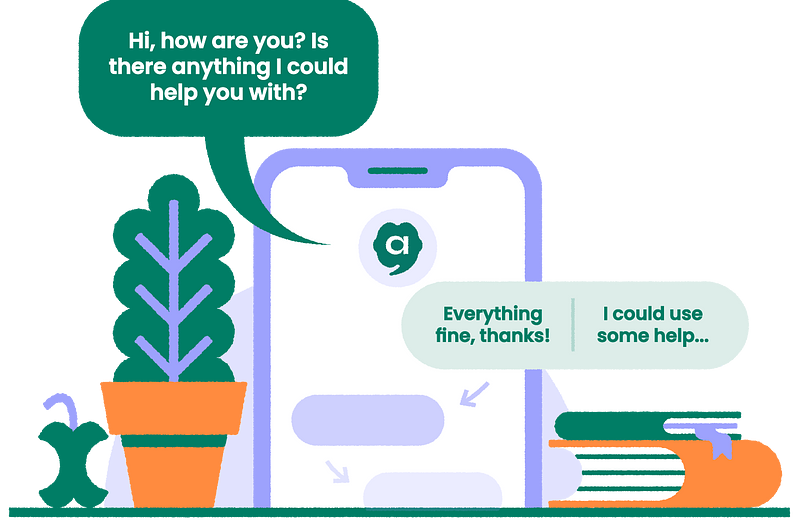
Annie Advisor checks in on students when they are likely to need help.
The proactive Annie can be programmed to send messages periodically or when events that could significantly affect a student’s wellbeing occur, like performing poorly on a test or being absent from several classes.. Because it’s planned and managed in conjunction with the school, counselors are able to programme it with relevant resources and information for simpler needs, and spend their time helping the students who need personal attention the most.
And Miska finds that students are happy to engage with Annie. “We were worried students would find it too impersonal. To our surprise, the first pilots and interviews showed the contrary. Students found it easier to ‘admit’ that they needed help to a bot than to a person, even a trusted and familiar person.” As one user put it, “The bot doesn’t judge. The bot doesn’t have anything else to do.”
AI can also help students figure out how to get to where they want to go. That’s the idea behind LifeVitae, which helps students chart - and follow - a career path. Envisioned to be a partner throughout a student’s school career, the platform has two main focuses: showing students how their life experiences are preparing them for the future they want, and providing them with the additional tools they need to achieve their goals. This level of career counselling has previously been expensive and hard to access, but AI makes it more accessible to all.
The bot doesn’t judge. The bot doesn’t have anything else to do.
Indeed, the possibilities of AI to build accessibility are tremendous. And while the next steps for AI - the integration of generative models such as Gemini or ChatGPT - are too new to have been safely and effectively implemented into educational programmes at scale, Olga sees great potential for the future. “We can adapt learning content to cultures and languages at a much higher speed compared to a manual approach. This allows us to bring our learning content to regions which are not otherwise economically viable. The integration of algorithms and AI in education enhances personalization, feedback mechanisms, data analysis, language learning support and content adaptation. Ultimately, it empowers learners to develop essential skills in a dynamic and adaptive learning environment.”
If you are working on something innovative in education, we want to hear about it. Share your innovation with us for the opportunity to be featured in our next Global Collection.
Photo by ThisisEngineering RAEng on Unsplash
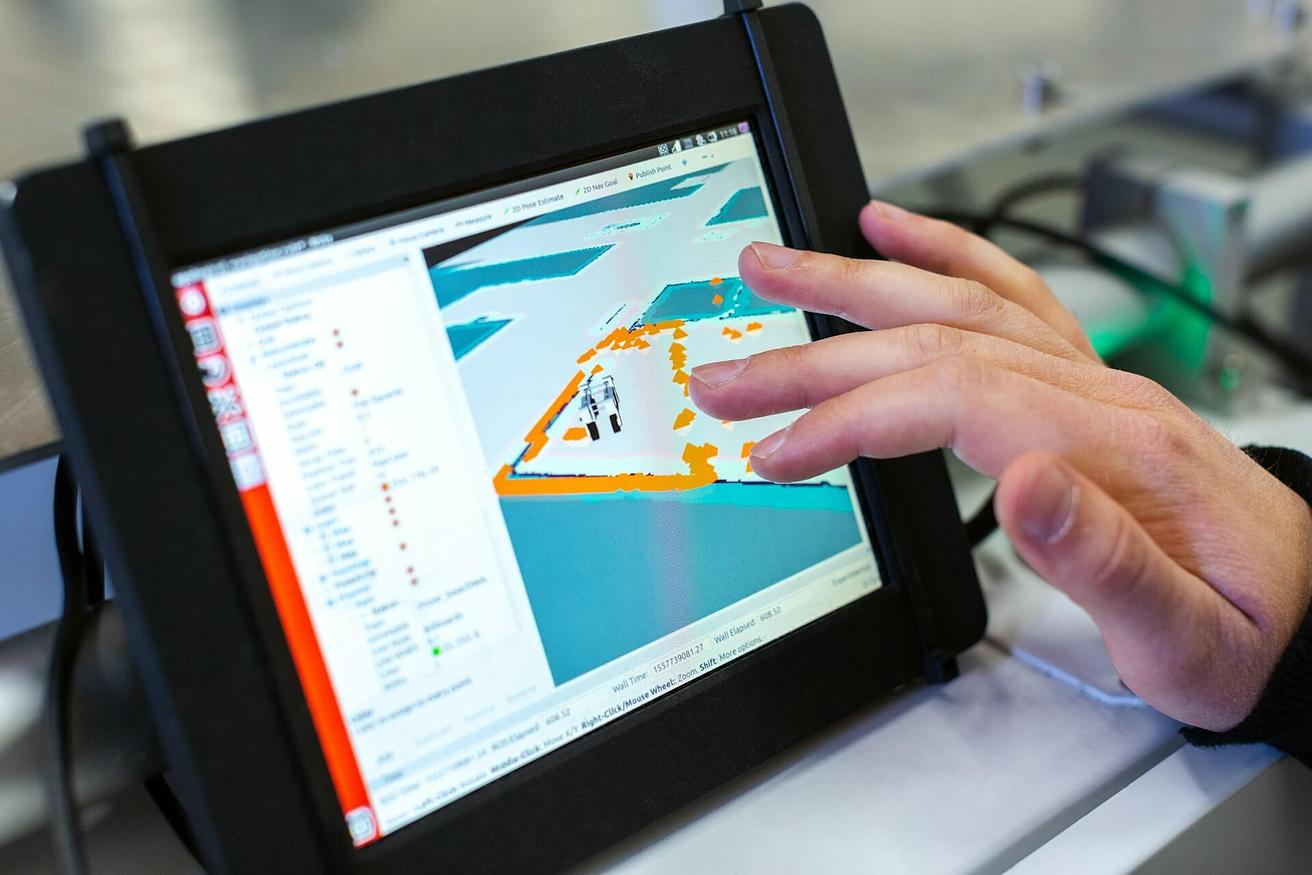
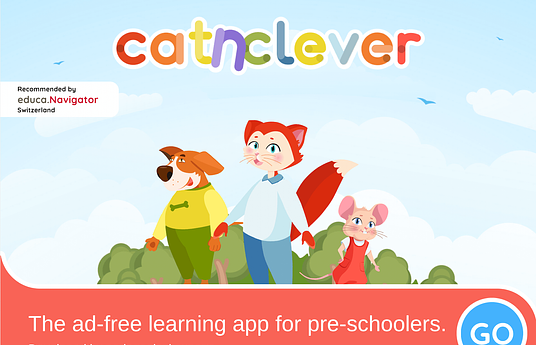
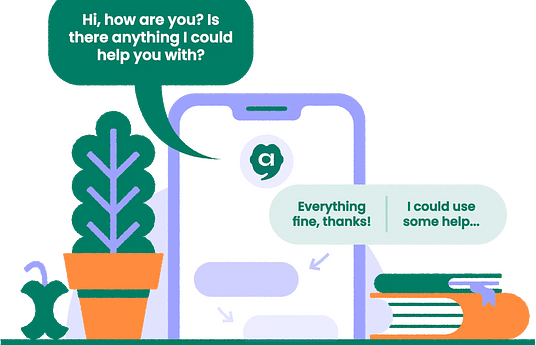
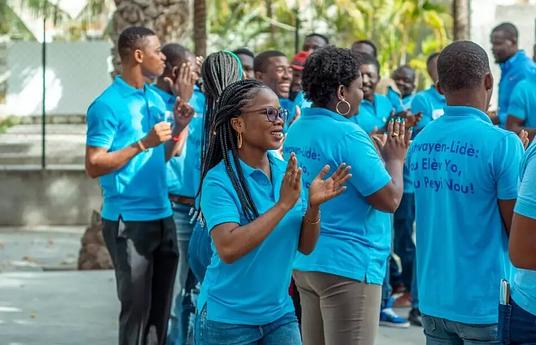
.jpg)